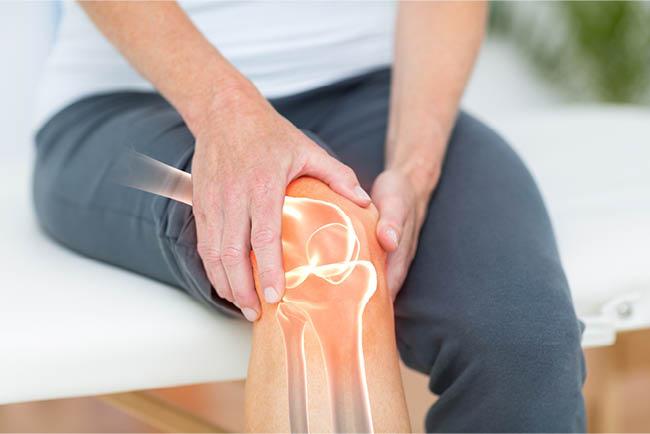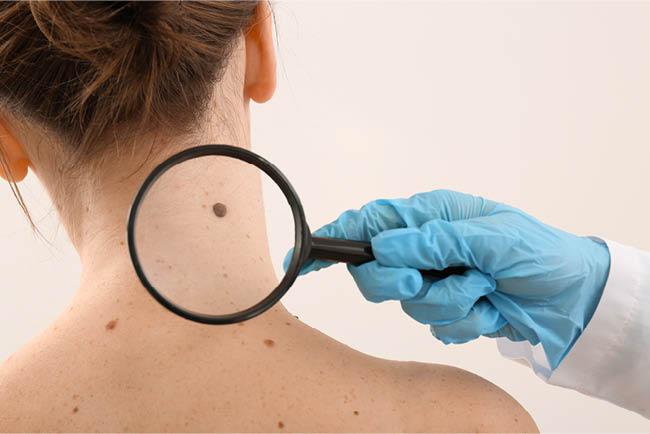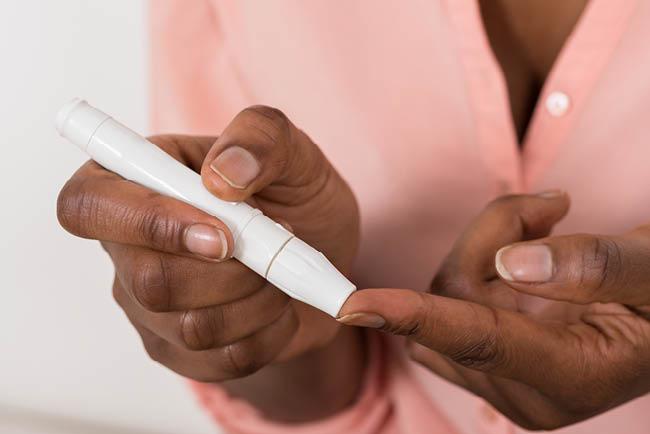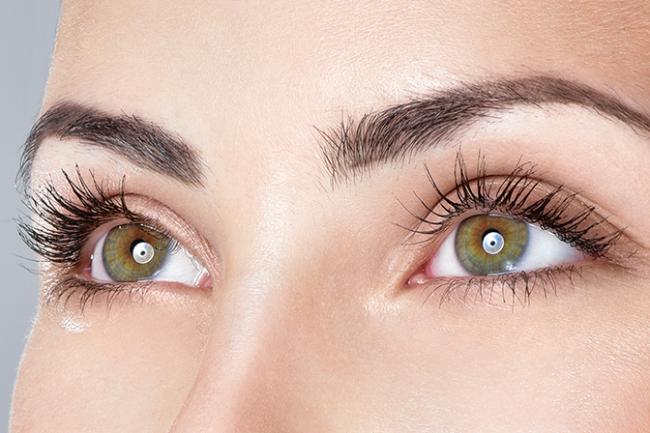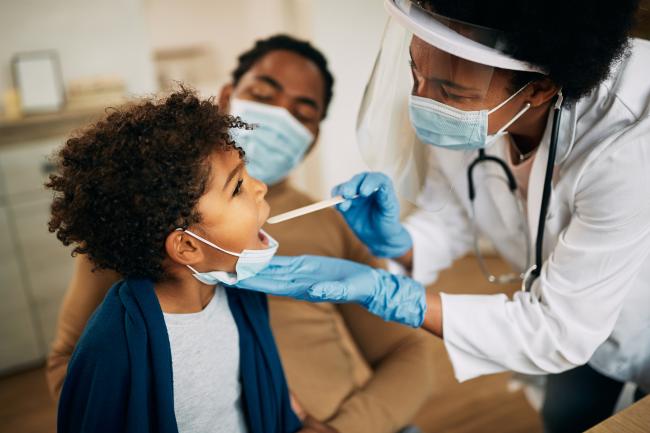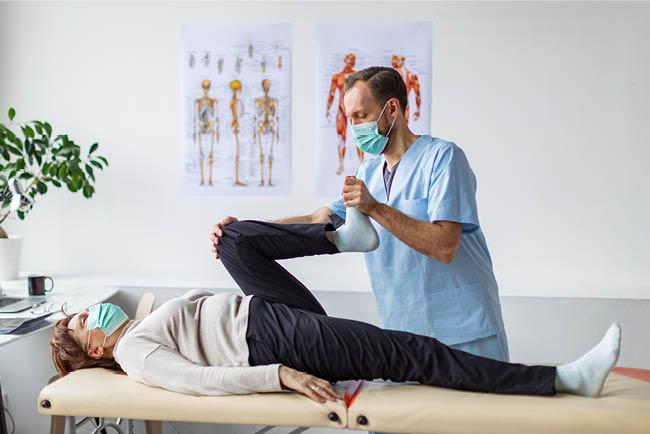Study Categories
-
A Study Evaluationg Decision-making for Young Adults, Older Adults, and Adults with Early Alzheimer’s Disease and Mild Cognitive Impairment
Official Title
Modeling Cognition and AgingPurpose
The goal of this study is to develop models to better understand decision-making for young adults, older adults, and adults with early Alzheimer’s disease and Mild Cognitive Impairment.
This study involves making simple decisions (such as “are there more blue dots or more yellow dots?”) on a computer. Healthy volunteers will also complete basic tasks such as solving puzzles, questionnaires involving numbers, and will be asked to provide basic demographic and health information.
Could this study be right for you?
You may be eligible for this study if:
- You are ages 18-25 OR
- You are age 60-90 and have NOT been diagnosed with a memory disorder OR
- You are age 60-90 and HAVE been diagnosed with either Mild Cognitive Impairment OR mild Alzheimer's disease
- You are a native English speaker
- You are able to see a computer screen and use hands on keyboard/screenAge Range
18 and up -
A study for children with nearsightedness
Official Title
The Chaperone Study: A multi-center, double-masked, randomized, placebo-controlled, phase III study of the safety and efficacy of atropine 0.1% and 0.01% ophthalmic solutions administered with a microdose dispenser for the reduction of pediatric myopia progressionPurpose
Is your child nearsighted?
Nearsightedness, or myopia, is a condition that results in blurry vision when looking at distant objects.
Myopia happens when the eyeball grows too long or the cornea (the clear front cover of the eye) is too curved.
As a result, light entering the eye is not focused correctly. While glasses and contact lenses can help a person with myopia see clearly, they do not address the underlying stretching of the eye.Myopia detected in young children tends to increase through the school years . As myopia progresses, it can increase the risk of retinal detachment, cataracts, myopia maculopathy and even blindness. To date, FDA has not approved any drug therapies for reducing myopia progression.
This is why researchers are working to develop new medications and technologies that may help children and teens with this condition. The CHAPERONE Study is a research study testing the safety and effectiveness of microdosed atropine eye solution to see if it slows the progression of myopia in children.
Could this study be right for you?
- Is your child between 3-12 years old?
- Does your child need glasses to see distant objects?
- Is your child able to go to periodic visits at the study clinic to check his/her vision and overall eye health over a 4-year period (11 scheduled visits will be required)?
- Are you available to speak with study staff by phone periodically between your child’s clinic visits to review your child’s experience using study medication?This study is not for children who have:
- Used atropine or other myopia drug therapies
- Had prior eye surgery
- A systemic disease or condition that can affect their visionAge Range
3 and up -
A Study for New Moms about Pelvic Floor Disorders
Official Title
Pelvic Floor Disorders in the First Year After Childbirth: (PEACH Study)Purpose
The goal of this study is to learn more about problems with urine or stool control, prolapse (feeling or seeing a vaginal bulge), and pain with sex, all which can affect mothers after delivery when they are most busy with their newborn.
If you join this study, you will complete a series of online surveys over a period of 12 months. The surveys will ask about urine and stool control, pelvic issues, and sexual issues. Each survey will take about 5-10 minutes.
Could this study be right for you?
You may be eligible if upon reading this, you:
- Have given birth within the last 10 days at The Ohio State University Wexner Medical Center
- Are 18 years of age or older
- Recently had a full term vaginal delivery of one baby
- Able to speak and read EnglishAge Range
18 and up -
A Study for Night Shift Workers
Official Title
Transcranial Direct Current Stimulation Therapy for Sleepiness Related to Shift Work Disorder (tDCS-SWORD)Purpose
This research study aims to determine the effects of a noninvasive form of brain stimulation on alertness for night shift workers.
Could this study be right for you?
• You are age 18 to 65
• You are currently working the night shift at least 3x/week
• You are suffering from sleepiness at work
• You do not have significant heart and lung problems
• You work within the Columbus, OH areaAge Range
18 and up -
A study for those undergoing MLF Surgery
Official Title
SIJ Stabilization in Long Fusion to the Pelvis: Randomized Controlled TrialPurpose
To determine whether placement of iFuse-3D across the ssacroiliac joint (SIJ) in the Bedrock configuration provides
clinical and/or radiographic benefits in patients undergoing multilevel spine fusion (MLF) surgery with fixation to the pelvisCould this study be right for you?
You may be eligible for this study if you are:
1. Age 21-75 at time of screening
2. Scheduled for multilevel (4 or more levels) spinal fusion surgery with planned fixation to the pelvis using S2AI screws
3. Patient has the necessary mental capacity to participate and is physically able to comply with study protocol requirementsExclusion Criteria
1. The reason for your multilevel spine fusion surgery is any of the following:
a. Congenital neuromuscular disease
b. Prior pelvic fixation (already have S2AI or iliac bolts in place, current surgery indicated to revise this hardware)
c. Grade IV spondylolisthesis
2. Prior sacroiliac joint fusion/fixation on either side
3. Presence of spinal cord stimulator
4. Presence of severe hip pain that could impair functional and quality of life improvement from complex spine surgery
5. Surgeon plans to use iliac screw for pelvic fixation
6. Severe osteoporosis
7. Known allergy to titanium or titanium alloys
8. Current local or systemic infection that raises the risk of surgery
9. Currently receiving or seeking short- or long-term worker's compensation and/or currently involved in injury litigation related to the SIJ or low back pain.
10. Currently pregnant or planning pregnancy in the next 2 years
11. Known or suspected drug or alcohol abuse
12. FibromyalgiaAge Range
21 and up -
A Study for Those with Chronic Pancreatitis
Official Title
A PHASE 1, SINGLE DOSE PK AND SAFETY STUDY WITH NI-03 FOLLOWED BY A PHASE 2, RANDOMIZED, DOUBLE-BLIND, PARALLEL-GROUP DOSE-RANGING STUDY TO EVALUATE THE SAFETY AND EFFICACY OF NI-03 COMPARED TO PLACEBO IN SUBJECTS WITH CHRONIC PANCREATITISPurpose
The purpose of this study is to learn if a study drug called NI-03 (also known as Camostat) can help people with chronic pancreatitis. We want to find out what effects, good or bad, the study drug has on the disease. It has been approved in Japan and has been available by prescription for the treatment of the acute pain associated with chronic pancreatitis. The study drug will not be approved for sale in the United States until tests from studies like this one show that it is safe and effective.
Could this study be right for you?
-You are between the ages of 18-80
-You have a diagnosis of chronic pancreatitis
-For males: documented surgical sterilization, sexual abstinence, or agreed upon means of contraception from screening until 28 days after final dose of study medication is required
-For females: documented surgical sterilization, sexual abstinence, postmenopausal status for at least 1 year, or agreed upon means of contraception from screening until 28 days after final dose of study medication is requiredAge Range
18 and up -
A Study for Those with Chronic Pancreatitis - The PROCEED Study
Official Title
Prospective Evaluation of Chronic Pancreatitis for Epidemiologic and Translational Studies PROCEED Study)Purpose
This study is done for researchers to understand pancreatitis and learn how the disease progresses naturally over time.
From the results of this study, researchers hope to develop some lab tests to support early diagnosis of chronic pancreatitis and to also discover any genetic factors that may affect your chances of developing chronic pancreatitis. The results of this study may also provide information that will open opportunities for new drug discovery.
Could this study be right for you?
• You have a history of acute or chronic pancreatitis OR
• You have experienced pain in your abdomen that a doctor has suggested could be due to pancreatitis
• You are between the ages of 18 and 75Age Range
18 and up -
A Study for those with COPD and Chronic Bronchitis
Official Title
A Clinical Evaluation of the RheOx Bronchial Rheoplasty System for the Treatment of the Symptoms of Chronic Bronchitis in Adult Patients with COPDPurpose
RheOx (Gala Therapeutics, Inc.) is an investigational device designed to reduce cough and mucus production through a minimally-invasive procedure. The procedure is performed through a bronchoscope, a thin flexible tube that is inserted through the mouth into the lungs. Once in place, RheOx delivers short bursts of electrical energy to the inner walls of the bronchi, eliminating the mucus-producing cells. Over the next several days, new cells grow and produce less mucus. The right lung is treated first, followed by treatment of the left lung about 1 month later.
RheOx has been studied in three clinical trials and has shown a significant improvement in quality of life and a reduction in cough and mucus at 12 months.
Could this study be right for you?
You may be eligible if:
-You are at least 35 years of age.
-Have chronic bronchitis, defined as productive cough for three months in each of two successive years, whereas other causes of productive cough have been ruled out
-You are receiving guideline directed pharmacotherapy which includes one or more long acting bronchodilator (LAMA, LABA) with or without an inhaled corticosteroid for at least 8 weeks prior to randomization
-You have a cigarette smoking history of at least ten pack years.
-Other criteria that will be reviewed by the study teamYou will not be eligible if you have:
- A known unresolved lower respiratory tract infection (e.g., pneumonia, mycobacterium avium-intracellulare infection (MAI), fungus, tuberculosis).
- A steroid-dependent condition requiring more than 10 mg of oral corticosteroid per day.
- Any implantable electronic device (e.g., pacemaker, cardioverter defibrillator, neuro-stimulation devices).
- A history of arrhythmia within past two years which includes tachy-atrial arrhythmias, any ventricular tachy-arrhythmias, or sinus bradycardia with heart rate less than 45 beats per minute.
- Unresolved lung cancer.
- A pulmonary nodule or cavity that in the judgement of the Primary investigator may require intervention during the course of the study.
- Had prior lung surgery, such as lung transplant, LVRS, lobectomy, lung implant/prosthesis, metal airway stent, valves, coils or bullectomy. Prior pneumothorax without lung resection, pleural procedures without surgery, or segmentectomy are acceptable.
- Asthma based on Global Initiative for Asthma (GINA) criteria.
- Smoked (including tobacco, marijuana, e-cigarettes, vaping, etc.) within the last 6 months.
- Unable to walk over 238 feet in 6 minutes.
- Uncontrolled GERD.
- Had prior severe respiratory infection with SARS-CoV-2 (COVID-19) that required ICU support with non-invasive and/or invasive mechanical ventilation.
- A known allergy to nickel.
- Other criteria will be reviewed by the study teamAge Range
35 and up -
A Study for Those with Diabetic Macular Edema--The BOULEVARD Study
Official Title
A PHASE 3, DOUBLE-MASKED, RANDOMIZED STUDY OF THE EFFICACY AND SAFETY OF INTRAVITREAL AFLIBERCEPT INJECTION IN PATIENTS WITH MODERATELY SEVERE TO SEVERE NONPROLIFERATIVE DIABETIC RETINOPATHYPurpose
The purpose of this 28-week study to investigate the effects and safety of a medication in participants with Center Involving Diabetic Macular Edema (CI-DME). .
Could this study be right for you?
- 18 years and older - Macular edema associated with diabetic retinopathy (DR) - Diagnosis of diabetes mellitus (DM)
Age Range
18 and up -
A Study for those with Type 2 Diabetes AND Depression
Official Title
Mindfulness-based cognitive therapy for comorbid depression and type 2 diabetesPurpose
The aim of this study is to improve mood and diabetes-related outcomes for those with type 2 diabetes mellitus (T2DM) AND symptoms of depression. The present study will examine the effect of mindfulness-based cognitive therapy (MBCT) on symptoms of depression and diabetes.
Your participation in this study will last 8 weeks.
Could this study be right for you?
You may qualify if:
• You are between the ages 18-75
• You have type 2 diabetes
• You are feeling symptoms of depressionAge Range
18 and up -
A Study for Those With Type 2 Diabetes AND Who Are Experiencing Food Insecurity
Official Title
Linking Education, Produce Provision, and Community Referrals to Improve Diabetes Care (LINK)Purpose
The purpose of this study is to improve hemoglobin A1c levels in patients with type 2 diabetes experiencing food insecurity.
The study will examine the effects of a produce referral program alone and in combination with other interventions. Our research is designed to develop a deeper understanding of how to provide patients with type 2 diabetes that are experiencing food insecurity with the resources, skills, and education to manage their health and social needs.
Could this study be right for you?
Inclusion Criteria:
- Age 18 years and older
- Type 2 diabetes based on American Diabetes Association Criteria
- Hemoglobin A1c level > 7.5%
- Worried about running out of food before you have money to buy moreExclusion Criteria:
- Pregnant -
A Study of DBS-Expert system used during Deep Brain Stimulation For Parkinson's Disease
Official Title
DBS-Expert: Automated Deep Brain Stimulation Programming Using Functional Mapping Phase IIPurpose
Deep Brain Stimulation (DBS) surgery is FDA approved for the treatment of Parkinson's Disease. The purpose of this study is to examine a technology (DBS-Expert system) that uses objective measurements to guide DBS programming. The DBS-Expert system analyzes motion data and provides recommendations to the physician or healthcare professional regarding DBS programming settings.
Could this study be right for you?
You may be eligible if you:
* Over the age of 18
* Able and willing to provide informed consent
* Clinical diagnosis of idiopathic Parkinson's Disease
* Implanted Boston Scientific DBS systemExclusion Criteria
* You are currently participating in any study with an investigational medicinal product (IMP) or investigational device.
Age Range
18 and up




